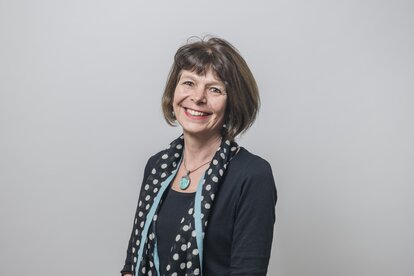The beginning of the year seems to be a time for students who have been undertaking a practical with us to come into the office and present their findings. This week it was the turn of Armelle Hausser, who conducted her 6 months fieldwork in Benin and Burkina Faso as part of her Masters at the University of Lausanne (UNIL). Her topic (in summary): How practice meets theory with regard to our local level partnerships.
This was of particular interest to me as it’s clear that whatever we preach with regard to gender equality and social equity (GSE), if our implementing partners are not “on board”, we will have a hard time achieving the results we expect. Indeed, this point is covered in one of the principles of our GSE policy – but beyond that, we also have a partnership policy, approved by our board of directors in 2014 after considerable internal discussion. It includes recommendations on partner selection, capacity development, and joint evaluation – and emphasises the importance of mutual respect and shared values, whilst acknowledging the need to tailor relationships to the type of partner. So – the theory has been elaborated.
What Armelle found in practice was something rather different. This was not really a surprise to any of us, as we all know that this is an area that needs better coordination; now the partnership policy is in place, it’s a clear line of future action. What her study highlighted was the complexity of the task. In Burkina Faso, we have 48 partners under 10 projects; in Benin we have 74, under 13 projects. This is a lot of partners – and of course they are very varied in type, size and competencies: ministries, departments, individual communes, local NGOs, research organisations, private companies… Development work has come a long way since the days of mainly direct implementation. Armelle noted the need for a country level database of partners, more standardised ways of working, a country team reflection on the meaning of partnership, and a clearer definition of mutual expectations in all cases. Agreed.
Armelle’s presentation took me back to February last year when I was in Benin, and had the opportunity to test a “tool” – a simple format – for the joint evaluation of partners regarding their responsiveness to gender and social equity issues. We visited the commune of N’Dali, a partner under our hygiene and sanitation project PACEA, and met with the Deputy Mayor Imorou Dramane as well as a number of his staff. The format we tested is simply a guide for a discussion. It is divided into five main areas: the organisation’s vision and mission; its management; its activities; its capacity to document and share experiences; and its technical and administrative competences – including monitoring and evaluation. For each of these areas, there are specific questions related to gender and social equity.
What quickly became clear is that the commune (rather like us) had good things on paper with regard to gender equality and social inclusion in its vision, mission, structure, and activities. However, that is where the similarity ended. Monsieur Dramane was well aware of what he was expected to say with regard to gender – but he was fairly honest about his own opinion. He did not see any benefit in women having a greater role in decisionmaking, including within the commune; no strong man would allow it. According to him, “A man believes that if his wife enters into politics, she will take more power and become uncontrollable.” This idea of a struggle for power between the sexes was one widely voiced by men, and acknowledged by women with varying emotions – resignation, frustration,
indignation. At the same time, we are actively promoting shared decision-making in the commune’s water management committees, and greater knowledge about hygiene and sanitation, particularly amongst women since they are most engaged in domestic water use. For long-lasting progress, we need men to be convinced that a woman’s gain is not her husband’s loss – power is not a “zero sum game”.
Men such as M. Dramane – senior staff of partner organisations – are thus key people. If they can be convinced that powerful, knowledgeable women are not necessarily a threat, but a force for collective good, there is a much better chance of turning both our GSE and partnership policies into practice.


